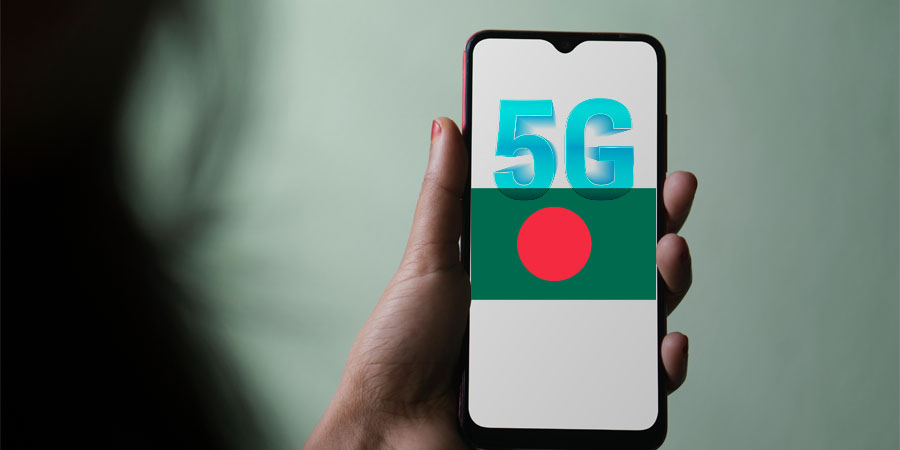The mobile phone market in Bangladesh has reportedly shown resilient growth in the first quarter of 2024. Despite challenges posed by heavy taxation and economic pressures, the market saw a modest 1.7% year-over-year (YoY) growth, shipping 4 million units.
According to the International Data Corporation’s Worldwide Quarterly Mobile Phone Tracker, Bangladesh shipped 1.8 million units in Q1 2024, marking a notable 11.6% increase from the previous year.
This growth follows a period of decline driven by economic hardships and stringent taxation on mobile devices and components. Notably, the entry-level segment, priced under USD 100, saw a decline of 6% year-over-year (YoY), reflecting shifting consumer preferences and economic constraints.
Market Leaders and Competitive Environment
Xiaomi emerged as a key player in the mass budget segment (USD 100 < USD 200), alongside Transsion and realme, capturing a significant 58% market share. The mid-premium segment (USD 400 < USD 600) witnessed vivo leading with a commanding 95% share, underscoring a niche market catering to higher-end consumers.
Transsion maintained its dominance in the market, bolstered by strong performances from its Tecno brand, which accounted for 44% of its total shipments. Meanwhile, Xiaomi experienced triple-digit, year-over-year growth following the reopening of its manufacturing plant in 2023, driven by popular models such as the Redmi series.
In the feature phone segment, Nokia (HMD) made a significant entry in Q1 2024, achieving triple-digit growth with its new models catering to diverse consumer needs.
Read More: Banglalink and Robi Partner to Enhance 4G Coverage and Network Efficiency
Also Read: Robi Axiata and Banglalink Sign MoU to Explore Network Sharing
Bangladesh Advancements and Digital Transformation Goals
Despite efforts to bolster 5G infrastructure, 5G-enabled smartphones comprised only 3.4% of total shipments due to current infrastructure limitations.
The Bangladeshi government has taken decisive steps to expedite the deployment of 5G networks. Central to these efforts is the issuance of a consolidated 5G license, streamlining regulatory processes to facilitate swift network deployment across the nation. Furthermore, the recent enactment of the Agency to Innovate (a2i) Bill underscores Bangladesh's commitment to fostering ICT and IoT advancements essential for future technological integration.
Related: Bangladesh Regulator Sets Up Committee to Draft Satellite Internet Guidelines
Recently, the Bangladeshi government's issuance of unified licenses to telecom giants like Grameenphone, Banglalink, Robi Axiata, and Teletalk marks another significant milestone. These licenses consolidate permissions for 2G, 3G, and 4G technologies, streamlining operations and preparing the ground for the seamless integration of future technologies such as 5G and beyond.
The unified licenses not only facilitate the sharing of infrastructure resources among operators but also introduce clearer regulatory frameworks for data retention and auditing processes. They streamline license renewal procedures into a single step, promoting competition, innovation, and ultimately improving service quality for consumers.
Read More: BTRC Awards Unified Spectrum Licenses for 5G Services
Bangladesh has also been progressing towards achieving its Smart Bangladesh goal. The vision, launched in 2009 under the Digital Bangladesh initiative, aims to harness technology and innovation to address socio-economic challenges and drive sustainable development. Significant strides have been made across education, healthcare, governance, and infrastructure sectors, laying the groundwork for a digitally empowered nation.
Education stands as a cornerstone of Bangladesh's Smart Bangladesh agenda, bolstered by initiatives like the Access to Information (a2i) program. These efforts have integrated technology into classrooms nationwide, providing students with digital resources and interactive learning tools. Such initiatives have significantly improved educational outcomes, with primary education enrollment reaching an impressive 98% by 2023, up from 87% in 2010.
Bangladesh's ICT infrastructure, including a nationwide fiber-optic network and cutting-edge technology parks like the Bangabandhu Hi-Tech City, have positioned the country as a regional powerhouse for technology and innovation. This success is underscored by Bangladesh's high rankings in global indices such as the Global Innovation Index and the Digital Evolution Index, affirming its status as a leader in digital transformation within the region.
Also Read: 5G to Drive Mobile Communications Services Revenue Growth in APAC
As Bangladesh navigates economic challenges and regulatory complexities, sustained investment in infrastructure development, particularly in 5G technology, will be crucial. This proactive approach not only supports the government's efforts to expedite 5G deployment but also positions the country favorably to capitalize on emerging opportunities.
By aligning technological innovation with consumer demand, Bangladesh can drive inclusive growth and maintain its leadership in digital transformation within the region and beyond. This synergy will be pivotal in fostering digital inclusivity across all sectors of Bangladeshi society.
Past Coverage: SEA-ME-WE 5 Submarine Cable Breakage Disrupts Bangladesh's Internet
Continue Reading: Malaysia’s Mobile Service Revenue Expected to Grow Through 2028






